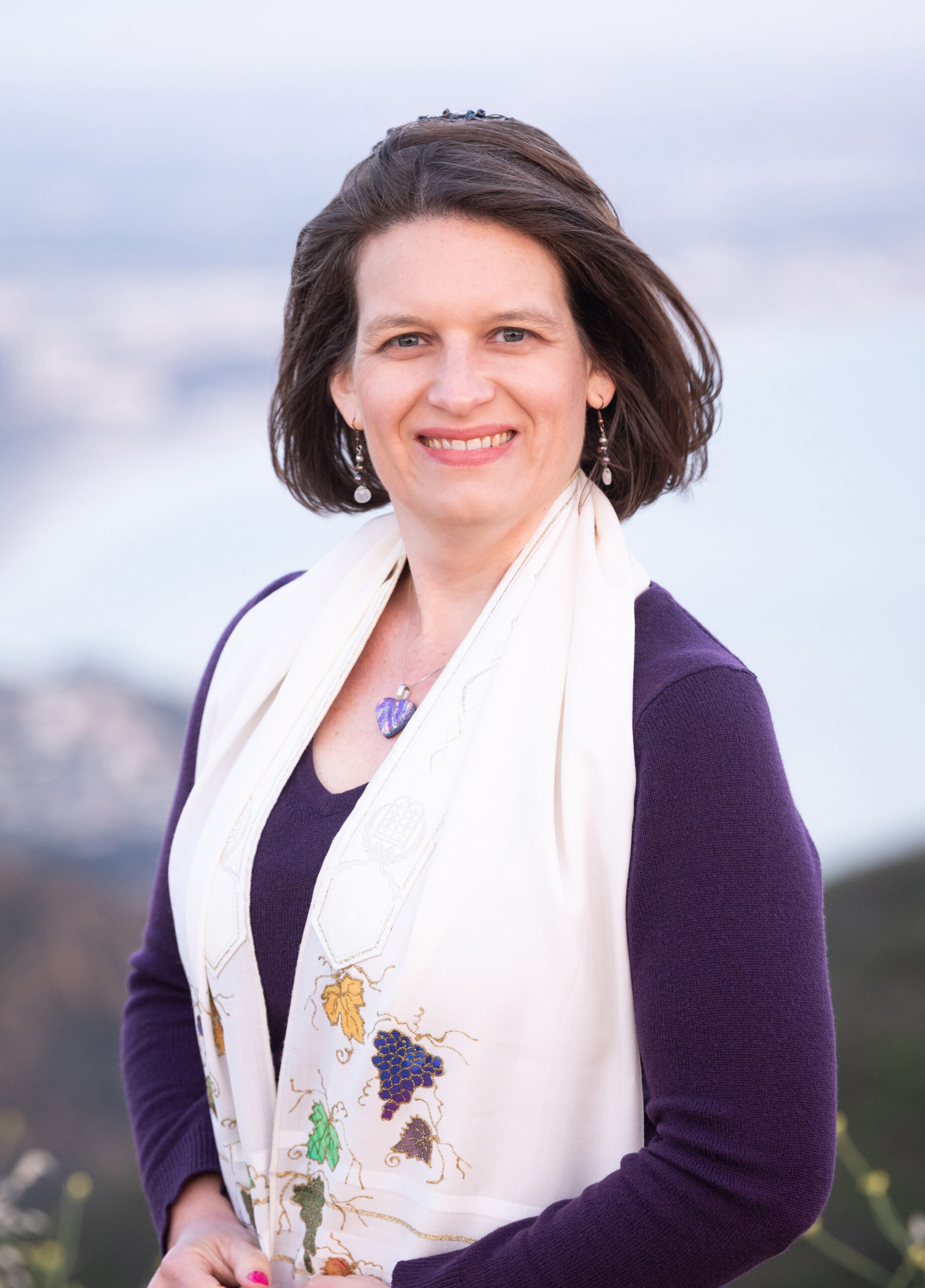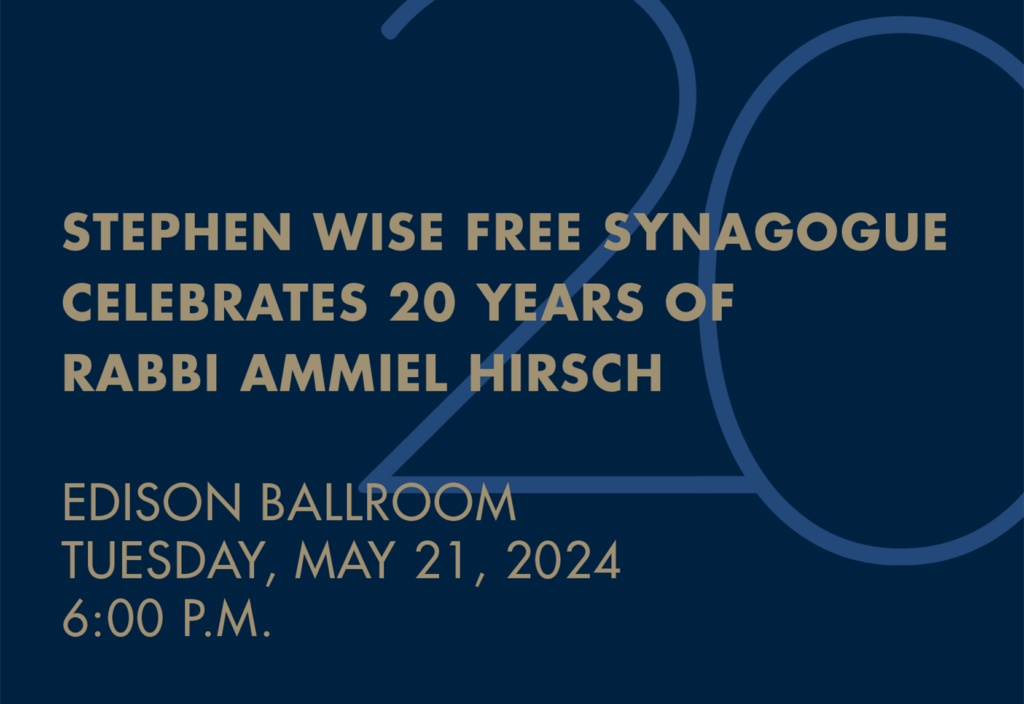
Rabbi Dalia Samansky
(She, her, hers)
Associate Rabbi
Email: dsamansky@swfs.org
Office: (212) 877-4050, ext. 246
Rabbi Dalia Samansky came to Stephen Wise from Temple Ahavat Shalom in Northridge, California, where she ran the religious school and youth programming for four years, and Los Angeles’ Melton School of Adult Jewish Learning, where she was a member of the faculty for 13 years. She was ordained by Hebrew Union College-Jewish Institute of Religion in 2009.
Watch Sermons
Free Will
Why does God let bad things happen? It’s a question Rabbi Dalia Samansky’s sixth-grade students — and many of us — have asked. “Judaism teaches that humans have agency over our actions,” says Rabbi Samansky. While we have the opportunity to choose wrongly and harm others, we also have the opportunity to choose good. “In the final days of this Jewish year, let us reflect on our decisions and actions of the past year and prepare for the one to come. This is what Elul and the High Holy Days are all about —the free will to choose our path.”
Seeing One Another
In this week’s parashah, God commands, ‘See, this day I set before you blessing and curse.’ Rabbi Dalia Samansky asks, “What does it mean to SEE rather than HEAR?” She explains, “To be rendered invisible is to be told you don’t matter. In our increasingly isolated world, maybe the imperative to see reminds us of the importance of seeing the people around us. If we don’t, we risk our lives feeling lonely and cursed.” How can we ensure we are seen and help others feel seen too?
Sometimes There Is No Reason
Our Talmudic rabbis spent copious amounts of time theorizing about why the First and Second Temples fell, says Rabbi Dalia Samansky ahead of Tisha b’Av. “But as much as we try to find reasons, we also know that sometimes, there are none — life just isn’t fair. Each of us must face challenges and calamities that compel us to question our theology and ultimately force us to reexamine and refocus our values and understandings of life.”
Finding the Right Balance
“This week, we were treated to a master class in leadership,” says Rabbi Dalia Samansky. When tasked with anointing a new leader, Moses did not cling to his role or pass it on to his sons. Instead, he set out to ensure the right leader was selected, throwing his full support behind Joshua. “Leadership is about finding the right balance — knowing when to hold your ground and when to compromise.”
Taking Responsibility; Passing Leadership
We often hear Pirkei Avot quoted: “You are not obligated to complete the task, but neither are you free to abandon it,” says Rabbi Dalia Samansky. While generally used in social justice circles, this quote also reminds us that “ultimately, leadership must be passed on to each new generation — willingly or unwillingly.” Over the course of this week’s parashah, “both Miriam and Aaron die, and Moses finds out that he will not be the one who leads his people into the Promised Land, thus beginning the passing of leadership to the next generation of Israelites.”
A Leap of Faith
Having been enslaved for so long, the Israelites doubted their ability to enter the Promised Land. Rabbi Dalia Samansky explains that “faith is believing without proof,” something the older generation of slaves struggled with. In a world where God’s presence isn’t as obvious, how do we develop faith?
A Growth Mindset
As the weather heats up, we read about our ancestors’ 40 years of walking and complaining in the desert. Rabbi Dalia Samansky explains that the slave generation’s inability to believe in change kept them from entering the Promised Land, while the new generation’s growth mindset allowed them to succeed: “Just as God let us learn from our mistakes, we must allow our children, students and ourselves to make mistakes and discover the solutions to our problems.”
Humanity in the Pause
“How often have we reacted instinctively and immediately regretted it?” asks Rabbi Dalia Samansky. Recognizing our weaknesses, the Torah prescribes rest periods and mitzvot to encourage us to pause and reflect. “When we take that extra moment to choose our actions and words, we reach our highest potential.”
Mistakes and Redemption
“We as a community royally screwed up” when we built the golden calf, says Rabbi Dalia Samansky. “But it is what happens in this week’s portion that shows how we as a people grew from our experience. Mistakes and bad decisions happen. It’s how we respond, learn and grow after them that reveals our true character.”
Silver Linings
On this last Shabbat of 2023, we read about how Joseph came to terms with the treachery of his brothers. “Sometimes our negative experiences help prepare or propel us,” says Rabbi Dalia Samansky. And while “not every negative experience in our life leads to something better, being open to the possibility of growth from our struggles is to believe in hope.”
Recent Commentaries and Op-Eds
NY Jewish Week: New York Jews, grappling with surging antisemitism, are bolstered by massive pro-Israel rally
Nov 14, 2023
Congregants lined up in the morning cold outside the Stephen Wise Free Synagogue in the Upper West Side as the dawn broke Tuesday. Many of them held signs in support of Israel as well as supplies for the long day ahead as they boarded a large tour bus headed for Washington, D.C…


